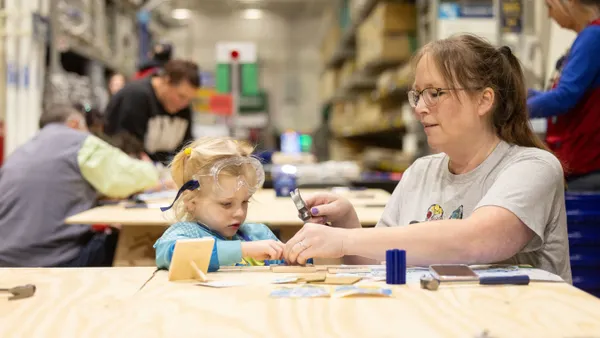Dive Brief:
-
One of the most notable aspects of Alibaba’s massive Singles Day sales event this past weekend — other than the record $25 billion in purchases — was a test run of the Chinese company’s FashionAI system, which uses machine learning technology to make clothing and style recommendations, according to a report from MIT Technology Review.
-
The FashionAI system is a large touchscreen device that is designed for customers to interact with while they are trying on clothes. The system uses information embedded in clothing tags to help recommend other items. It can ask customers questions to better learn preferences, and is also capable of summoning a human store associate if the customer wishes.
-
FashionAI screens were installed in 13 brick-and-mortar stores around China for Singles Day, according to the report. Alibaba has yet to announce plans for broader testing or deployment of FashionAI.
Dive Insight:
This is one of Alibaba’s most definitive moves into artificial intelligence-powered virtual assistants. This past summer, the company demonstrated a virtual assistant called Tmall Genie in the form of a home speaker system, but the connection between FashionAI and Tmall Genie is not entirely clear.
They seem similar in terms of the technology used, but the latter — at the time of its demonstration — appeared to feature a wide variety of capabilities, while FasionAI seems more narrowly focused on clothing and style, as the name would suggest.
The fashion segment has certainly been an early testing ground for AI systems. Frank+Oak, a fashion retailer, started using an AI system from third-party provider Propulse back in February, and in September, Levi Strauss teamed up with mode.ai to create an AI-powered chatbot tool called Virtual Stylist. Artificial intelligence appears poised for broader growth, as well, as the majority of retailers are planning on using AI in the future and 86% of CMO's plan to invest in the technology.
Alibaba's FashionAI is a sign that the company plans on staying in step with how others in retail and e-commerce are using the new technology, although by most accounts the Singles Day debut was positioned more as a limited test or pilot program than the beginning of a wider rollout.













